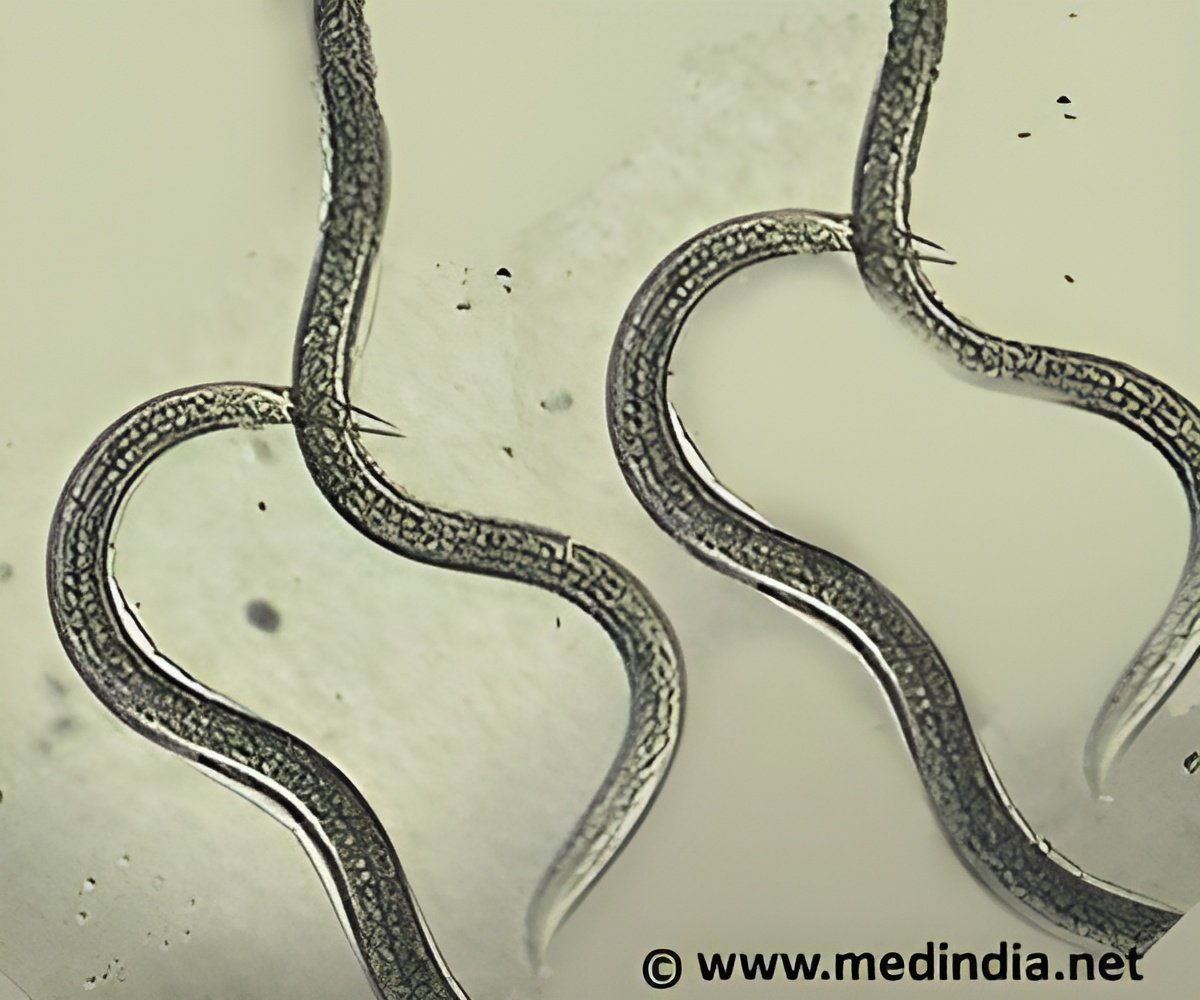Researchers have successfully treated monkeys with chronic diarrhea using parasitic worms (helminths). Helminths restore the balance of gut bacterial communities.

"The idea for treating colitis with worms is not new, but how this therapy might work remains unclear," says the study's senior corresponding author, P'ng Loke, PhD, assistant professor of microbiology at NYU Langone Medical Center. "Our findings suggest that exposure to helminths may improve symptoms by restoring the balance to the microbial communities that are attached to the intestinal wall."
Because inflammatory bowel diseases are more common in countries with developed economies and is rare in developing countries, researchers have hypothesized that endemic helminth infections in developing countries may offer protection against this disease. In animal models of autoimmunity these worms have suppressed inflammation, and clinical trials indicate that helminth therapy can be beneficial in inflammatory bowel diseases.
Juvenile monkeys kept in captivity often spontaneously develop chronic diarrhea that is difficult to treat by veterinarians. Dr. Loke and his colleagues treated 5 monkeys with chronic diarrhea with microscopic helminth eggs and collected tissue samples before and after treatment.
Tissues samples taken before treatment from sick monkeys had many more attached bacteria than healthy monkeys and the types of attached bacteria were completely altered (dysbiosis). This attachment of altered bacteria was associated with a very strong inflammatory response. After treatment, the types of bacteria attached to tissue samples were much more similar to healthy monkeys, and 4 out of 5 monkeys had less diarrhea and started to gain weight.
Dr. Loke and colleagues are now embarking on a new clinical trial designed to study how pig helminth eggs (TSO) may relieve symptoms of ulcerative colitis (UC) and have started enrolling patients at NYU Langone Medical Center. TSO is being used because it can be produced under pathogen free conditions certified by the FDA for clinical trials and cannot be transmitted from person to person.
Advertisement











